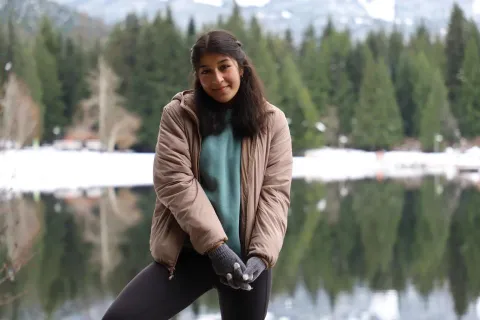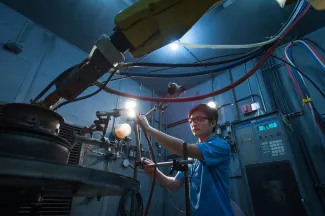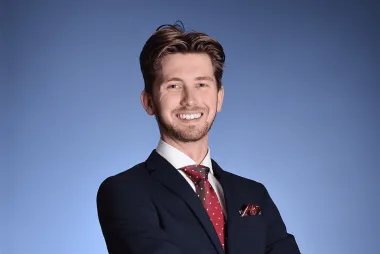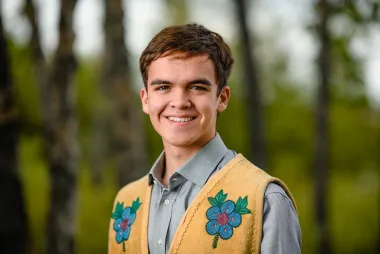“You don’t have to be the most important person in a room to have a meaningful impact.”

Debalina Saha
- Degree:
- Bachelor of Applied Science
- Grad year: 2022
- Program:
- Campus: Vancouver
I moved around a lot as a kid. I spent the first five years of my life in Georgia, moved to Bangladesh for another five years, and finished off high school in Ethiopia. I grew up with a multitude of cultures, perspectives, and good food; so much good food. I got to learn new languages and connect with people from all over the world.
I loved school and everything it had to offer. I was on the swim team, I was part of the theater club, Model UN and was a tutor for elementary students. I love listening to other people’s stories and understanding how they view the world.
I loved learning, observing, and problem solving -- making engineering the perfect undergraduate degree for me.
Why did you choose to go into your field of study at UBC?
I had never heard of Materials Engineering until I came to UBC. But after one quick google search, I knew it was exactly what I wanted to pursue.
Materials engineering is the bridge that connects all engineering disciplines together. For any engineering project, you need to have a thorough understanding of how a material will behave under specific loading conditions -- at which point will the material fail? I wanted to learn more about how materials are designed and how they behave on a microstructural level. I was also eager to learn more about the research and development of new sustainable materials!
What have you learned that is most valuable?
I’ve learned so much about engineering, problem solving, critical thinking and collaborating with faculty and students alike. I’ve learned how to step into leadership roles and coach faculty to incorporate decolonization curriculum into their existing engineering courses. I’ve helped restructure and redesign engineering courses to create space for different knowledge systems and Indigenous ways of knowing.
As an undergraduate student I have had the pleasure of deconstructing colonial hierarchies and transforming engineering education with support from incredible faculty members. I would like to specifically mention Pamela Wolf, Chadwick Sinclair, Jon Nakane and Ben Britton. These professors really pushed me to think critically, ask outrageous questions and grow as an engineer.
Where do you find your inspiration for using your degree to make an impact on our world?
I find inspiration from my family; my parents are both very strong individuals and excellent role models. Their unwavered confidence to stand up for what they believe is right inspires me to keep pushing past any road blocks I encounter. I am constantly inspired by my friends, I learn so much from their diverse experiences and different ways of problem solving. I am inspired by faculty members who go out of their way to encourage and promote undergraduate students to achieve their goals. Lastly, I am inspired by young change-makers around the world. Initiating societal change without knowing the outcome is scary, I am inspired by their fearlessness.
What are your future plans to make a difference in our world?
I hope to learn more about engineering education and the intersection with equity, diversity and inclusion. I look forward to learning more about deconstructing colonial ideologies ingrained into our modern education systems. I hope to travel more, experience different parts of the world and make meaningful connections along the way, this is just the beginning.
Do you believe your education or accomplishments at UBC will have an impact on the future of work?
Yes! In the past couple of years I’ve watched our decolonization curriculum grow and spread across six engineering departments and 15 different courses. More faculty members and students are getting involved with reconciliation and design. I look forward to seeing new projects that focus on synthesizing sustainable design, reconciliation and intercultural learning.



